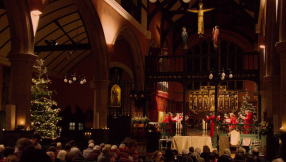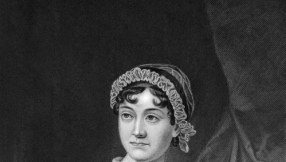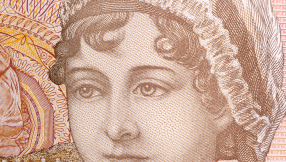Today we remember the 52 people who lost their lives in the London bombings on July 7, 2005, as well as hundreds of others whose lives were forever altered by that day.
In the midst of tragedy and disaster, there were also acts of great kindness and courage.
The 2006 New Year's Honours list included 23 men and women who were awarded for their "immense strength of spirit and courage" – many of whom were working with the emergency services. Another six people were recognised for their contribution in the 2008 New Year's Honours.
Edgware Road
Steve Hucklesby, who works as a policy adviser to the Methodist Church, was on an undamaged train which stopped next to the bombed train at Edgware Road. With the help of others, he smashed the windows of both trains so that he could climb in and help the injured.
He said at the inquest that he was "convinced" he ought to help because he had first aid training. He helped a number of people, including attempting to resuscitate Laura Webb, 29, who did not survive.
Although he was uncomfortable with being described as "heroic", the coroner, Lady Justice Hallett, said: "You may not like the word heroic but you'll have to forgive me, I am going to use it because I have to use it because I can't think of any other word to describe what you did."
Tim Coulson, a teacher from Henley-on-Thames, also made his way on to the Edgware Road train to give first aid. One man he helped had lost both of his legs and he stayed with him as he died in his arms.
Lady Hallett described Coulson as an "extraordinary man". "I remain astonished that the likes of you and some of your fellow passengers could break the window, climb through it across the track and into that bombed carriage to help the seriously injured and the dying," she said.
Adrian Heili and Lee Francois Hunt were awarded Queen's Commendations for Bravery for responding to the bombing at this station. They both crawled under a train to help an injured man as well as helping other victims.
Aldgate
Off-duty police officer Elizabeth Kenworthy was on the train that was bombed near Aldgate station. She used her jacket as a tourniquet on one man's leg, and used her belt to do the same for another woman. She stayed with them until they were rescued and both survived.
"I'm not a hero, not really," she said in an interview the Telegraph. "I didn't feel afraid, I was just worried that those people might die before help came. I feel fairly embarrassed about being called a hero, I feel a bit of a fraud. I don't feel like a hero at all, I was glad to help."
Speaking of how she felt after the incident she said: "I had complex feelings around it – anger and frustration and a sense of guilt; perhaps that's not a good word but I wish I could have done other things."
Off-duty tube driver John Boyle was passing Aldgate station at the time of the explosion. He was the first to help get people off the train and rigged up lighting to help with the disaster response.
Russell Square
David Boyce, station supervisor at Russell Square, helped evacuate people trapped in the lifts. He then went into smoke-filled tunnel to give first aid and helped carry people out, returning to the tunnel repeatedly.
Gillian Hicks, who lost her legs in the bomb at Russell Square was awarded an MBE in 2008 for her work for charity. She set up the organisation M.A.D. (Making a Difference) for Peace and raised money in aid of uniting communities by doing a 200-mile walk on her prosthetic legs.
Hicks survived her injuries by applying tourniquets to her own legs. At the inquest Lady Hallett told her: "Where do you get such an indomitable spirit? It seems as if by a determination to live, sheer willpower and quick thinking, you saved your own life.
"Until I started this process, I had no idea that people could survive as horrific injuries as yours. You are amazing."
Events such as these inevitably display the best and worst of humanity: the evil of those who committed the crime and the courage of both the victims and rescuers who have to deal with the effects of that day.
Reflecting 10 years on, Steve Hucklesby told Christian Today: "The anniversary is a time to remember those who died and also the families who mourn the loss of sons or daughters, wives or husbands. Those injured carry the physical and mental scars of that day although thankfully most seem to have made a good recovery.
"Along with others I have poignant memories when reflecting on 7 July but the families of those who died continue to live with the pain of loss every day."













